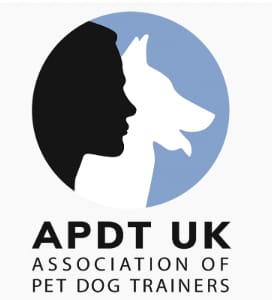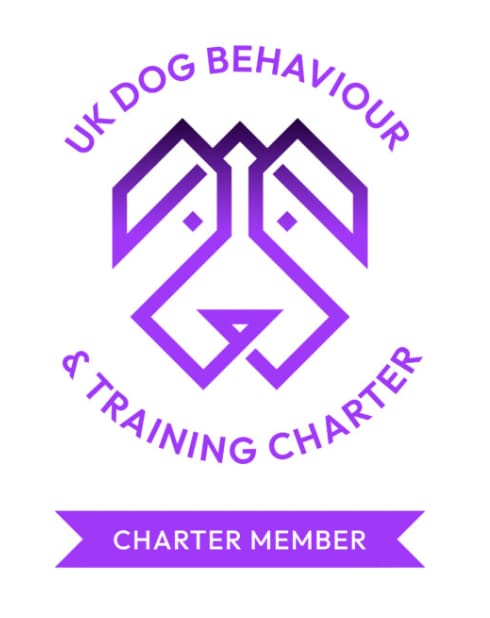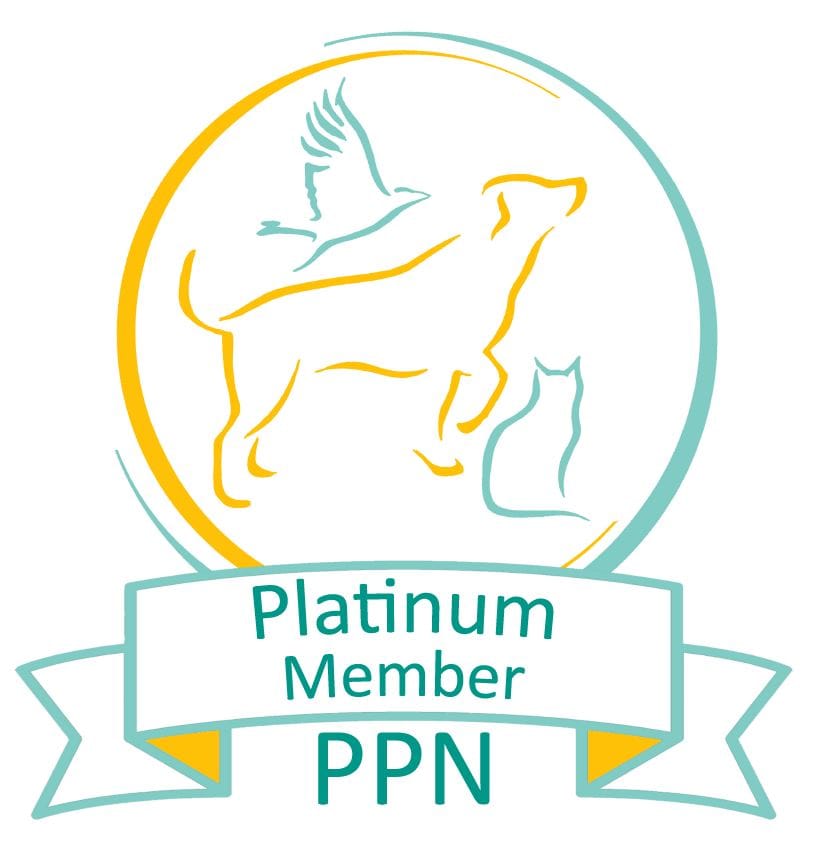Your dog and other animals
17/07/2019 - Blog
Have you ever felt embarrassed because your dog has terrorised the neighbour’s cat or lunged at passing horse riders? You’re not alone. Here’s how to help your dog remain cool, calm and collected around other animals.
Socialisation is key
It’s important that you start to socialise your new pet as soon as your new puppy or dog comes to live with you. It doesn’t matter how old your dog is. Although young puppies are sometimes more open to socialisation than a dog who already has lots of life experience, that doesn’t mean you can’t train an adolescent or mature dog to behave well around other pets and animals.
Remember too that socialisation is a lifetime activity not a one-off. Dogs need to practise their social skills just as much as we do.
I consider myself fortunate because I live in the countryside where there are horses and livestock within easy walking distance of home. I also have other pets as well as dogs so when young Spirit joined our family, he could start meeting other creatures from day 1.
From birth, Spirit was brought up in a household where the family feline was comfortable around dogs and so he’s quite accustomed to sharing a space with other species. Remember – to a dog, humans are other species too!
This is Spirit aged 10 weeks meeting horses for the first time. One important thing to note here is that these horses have also been well socialised. They are perfectly comfortable with dogs. Not all individuals are dog-friendly so ALWAYS ask their owner before approaching any animals with your dog.
Notice that Spirit is concentrating solely on me and the treats I’m carrying. He’s never had a bad experience with horses and has no reason to be worried by them. He’s also quite a bold character.
Your dog’s background and unique character will have a bearing on how confident they are around other species. By taking things at the dog’s pace, even a less confident dog can learn how to ignore other animals. We’re not asking them to make friends with them….just to behave well and keep out of trouble.
Every dog will need a slightly different approach to this training. Which is why I always recommend taking advice from a qualified dog trainer before introducing your pet to other species.
Avoiding problems between your dog and other animals
Socialising your dog is one way to avoid problems but until you know your pup’s tolerance threshold, it’s best to avoid getting into scrapes in the first place.
- Keep your dog on a lead when you are near livestock or wildlife.
- Make sure your dog has a bulletproof recall – just in case you meet other creatures during an off-lead walk. Poor recall? Compromise with a long lead while you are working on it.
- Always keep to footpaths, any farmer would be justified in getting cross if you are wandering across his field full of valuable livestock.
- Remember too that meeting other living things works both ways. Animals can be very protective of their young or their harem’s. If you and your dog stray into their “safe space” you are potentially jeopardising both of your safety.
- If you want to socialise your dog, stay on your side of the fence and approach slowly. Keep things calm – no high pitched excited encouragement from you. Just your clicker (if you use one) and frequent treats.
- As soon as your pup shows any sign of paying attention to the animals, move away a little and keep treating. What you are aiming for is a dog who is comfortable around other species but not interested in approaching them.
Other pets in the home
Bringing a new dog into your household is going to be a surprise for any existing pets. And so you may need to be patient and introduce them in gentle stages. A little bit of advance preparation will go a long way in this case. So before Fido arrives, arm yourself with plenty of tools to help ease the introductions. A crate so that your dog has a safe retreat. Toddler gates are great for ensuring that everyone can see, hear and sniff each other without having physical contact. You’ll also need lots of treats for everyone and a fool proof plan of action.
If you existing pets are likely to be a bit feisty around the newcomer, why not arrange a home visit from a dog behaviourist before your new pet joins the family? Together you can discuss the best way to make introductions and compile a plan of action in case the meetings don’t run smoothly. If you a bringing a new puppy home, you will also be able to discuss other aspects of training and socialisation.
Our private puppy lessons and rescue dog home visits are the perfect way to get practical advice on introducing your dog to other animals. Click on the links below to find out more.
Private puppy lessons in your own home
If you are worried about your dog’s behaviour around wildlife, farm animals or other pets, our dog behaviourists can help. Please contact us to discuss a tailored dog training solution.
You may also find these articles helpful








